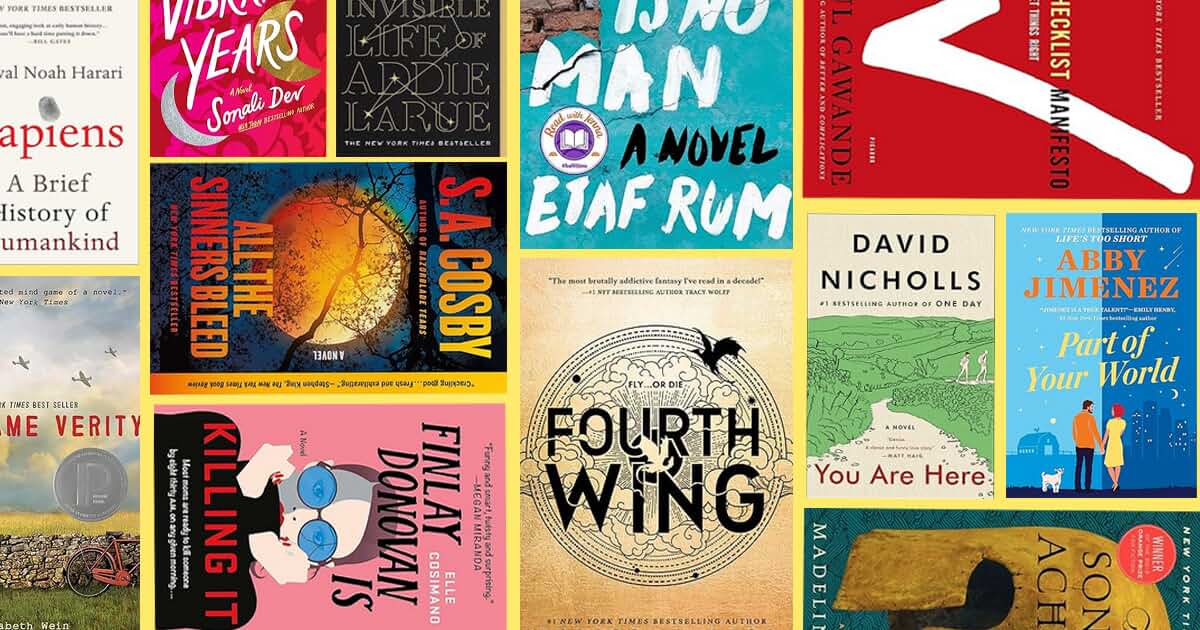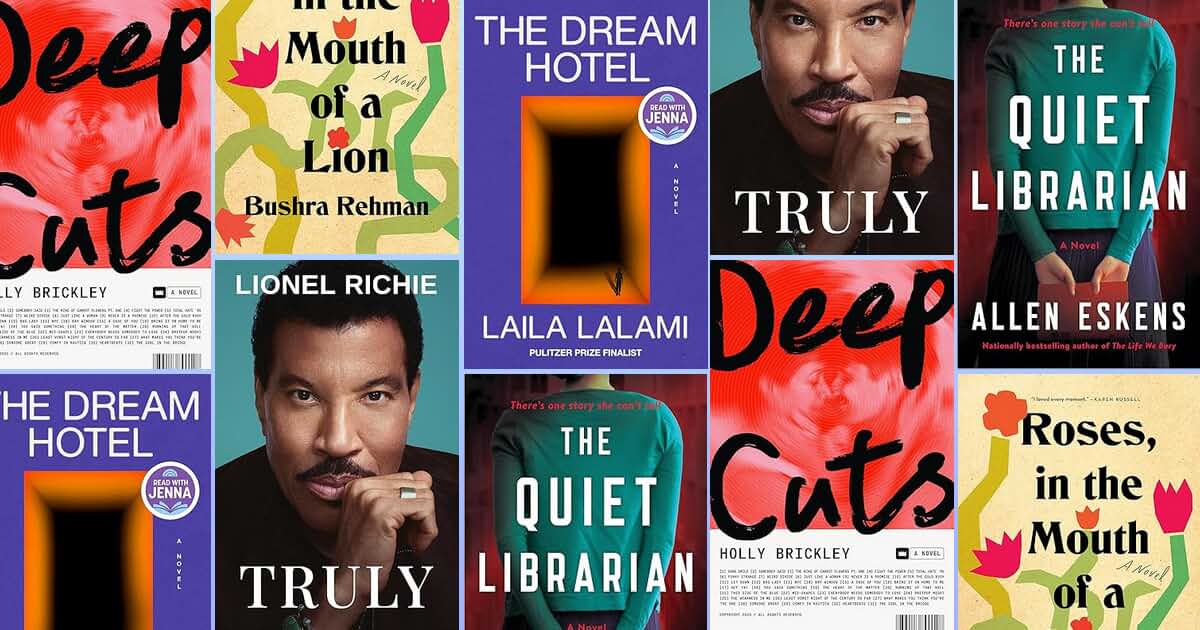John Stamos shares his favorite recent reads—including one that felt like “getting hit with a cold splash of water”

So many of us grew up with John Stamos as a fixture on TV—whether he was playing a young heartthrob on General Hospital, an adoring and hilarious uncle on Full House, or showing off his dramatic talent on ER. But, as we know, actors are not the sum of their on-screen, Broadway, or People Magazine appearances. In his memoir, If You Would Have Told Me, Stamos offers an frank, funny, and poignant look at his life—he says he is “brutally honest about my shortcomings.” To celebrate his memoir, we asked the actor what books have inspired him. This is what he said:
“When I think about the books that truly move me, it’s the central character that is always the heart of the story that stands out. Their authentic, unapologetic, and genuine lives offer refreshingly unique perspectives that make you think, “Yep, there should be a book written about them.” Even with novels, it's their essence that captivates. I dove into two such gems long before I started the uphill climb of penning my memoir, If You Would Have Told Me. Then, as I began to put pen to paper (or fingers on a keyboard), I picked up two autobiographical memoirs, hoping for a nudge of inspiration. But honestly, what I got was a full-on shove!”—John Stamos
One of my all-time favorite novels, Confederacy of Dunces is a brilliant tapestry of eccentricity and satire. Sure, I was drawn to the central character, Ignatius J. Reilly, with his peculiar antics and worldview—I mean, he has to be one of the funniest characters ever written. But it’s the backstory of how it got published that really got me: the tragic tale of its author, John Kennedy Toole. Having poured his soul into this magnum opus and facing continuous rejection, Toole was pushed to the depths of despair and killed himself. His close bond with his mother (which echo’s Ignatius’s relationship with his mother) becomes particularly poignant considering the aftermath of his death; she embarked on a mission to ensure her son's work saw the light of day. Despite facing relentless rejections from publishing houses, she remained undeterred. Her perseverance paid off when, almost serendipitously, a professor agreed to glance at the manuscript, expecting to abandon it after a few pages. Instead, he found himself captivated by its genius. The novel was eventually published and honored with the Pulitzer Prize! It is a stark reminder that no matter how insurmountable the obstacles might seem, one should “NEVER GIVE UP.” —John Stamos
Another favorite, Being There, is a remarkable novel by Jerzy Kosinski that delves into the life of Chance, a simple, sheltered gardener who becomes an influential figure in high society through a series of unlikely events. The beauty of the narrative lies in its commentary on the superficiality of politics and media and how perceptions can be easily manipulated (which seems to resonate stronger today than it did when published). I had distant memories of the movie starring Peter Sellers, but they had faded over time, which, in retrospect, was a blessing. Reading the novel without those preconceived visuals allowed my imagination to roam freely, crafting my own distinct interpretation of Chance's journey. —John Stamos
“And now for the memoirs—if you read mine and discover that I've been more brutally honest and forthcoming with my shortcomings then you might have thought, these two celeb biographies are the reason. After reading these, there's no other way to tell a story. If you want to move people, you must take a look into the deep, dark, truthful mirror and don't hold back.” —John Stamos
I was discussing my love/hate/love relationship as a first-time author with another first-timer, Tom Hanks. (Did you hear that name drop?) He told me his favorite was Sally Field's memoir, In Pieces. I admire Sally Field tremendously, but from the outside looking in, I wasn't sure how the adorable Oscar winner would interest me in her life. Boy, was I wrong!
Reading Sally Field's memoir, In Pieces, was like getting hit with a cold splash of water. Her autobiography isn't merely a collection of memories but a brave act of vulnerability, a woman standing in her truth, presenting her life not in glittering fragments but in honest, fragmented pieces that construct a deeply scarred and beautifully lived life. It is a testament to resilience, a heartbreaking and, at times, rare opportunity to see Sally in her most raw and unvarnished form. —John Stamos
Unlike many of my friends, I was never a diehard Springsteen fan, but I always admired him. But after reading his book, I think I'm ready to join my friends and shout from the rooftops, "BRUUUUUUUUCE!"
What impressed me most was his writing style, akin to a finely composed song. Each chapter unfurls like verses in a ballad, where tales of blue-collar struggles, love, and loss unfold with lyrical grace and raw authenticity. After a few chapters, I thought the style would get tired, but it turned out to be rather inviting and made me immerse myself deeper into the chorus of his life's song, echoing the restless spirit of rock and roll itself. —John Stamos








